 I had the opportunity yesterday to speak with Brokeback Mountain producer James Schamus, who is also co-president of Focus Features with David Linde. Schamus spoke candidly with me about Brokeback‘s success, its marketing strategy, and some of the controversy that has arisen since its release.
I had the opportunity yesterday to speak with Brokeback Mountain producer James Schamus, who is also co-president of Focus Features with David Linde. Schamus spoke candidly with me about Brokeback‘s success, its marketing strategy, and some of the controversy that has arisen since its release.
I obviously don't need to speak to this audience about its success (if you've been on Towleroad and you haven't noticed the Brokeback coverage
I've heard there is going to be a Brokeback Oprah show? When is it airing and which cast members are participating?color>
Heath and Jake and the entire gang. We don't know the air date yet but it should be sometime in the next ten days. They're juggling the schedule.
Were there any surprises on that show?color>
I have to say that the mere fact that we were on that show was a surprise to us. I'm still a bit stunned. I don't think there were any revelations, but there was an absolute embrace on the part of Oprah and the audience of the movie of the boys which was just amazing. When you see them come out on stage and you see the audience respond to them together, you'll just be blown away.
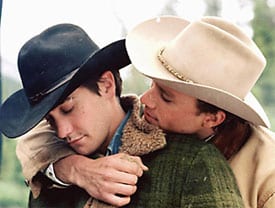 Is this the first time that Jake and Heath have done publicity together? I can imagine folks would be very interested to see their chemistry.color>
Is this the first time that Jake and Heath have done publicity together? I can imagine folks would be very interested to see their chemistry.color>
They were together in Toronto and have done [magazine] covers together. I agree it's great to see their dynamic as people as well as actors. It's so warm. I've distributed and made a lot of movies and oftentimes [at] the awards and the press junkets the dynamic can be less than pleasant. [This cast's dynamic] really has a kind of family feeling to it. Oprah is really such a gigantic cultural moment for this movie, so it was great to have those guys do it together.
It was hard scheduling because Jake is in the middle of shooting another movie. Jake has literally been working seven days a week on the Fincher film (Zodiac). We got him out of a day of shooting to make sure they were together.
A lot of people have been wondering why Jake didn't show up for the Golden Globes.color>
Well, he wasn't nominated and the Globes made a decision on their own not to include him in the Supporting Actor category which we felt was a real disservice to Jake. Of course, he's been nominated in that category by the SAG awards, the BAFTA awards, and — knocking on wood here for you know what. So, it's been great. But he came to our pre-Globes party. He's been a good sport.
There have been accusations that the publicity strategy for Brokeback has made a conscious effort to “de-gay” and play up the heterosexual aspects of the movie, particularly the “For Your Consideration” ads in industry trade magazines.color>
I think it's a measure of the film's success that there is this real sense of ownership (and examination) of everything we do. I think these kinds of discussions are legitimate. On the other hand, I gotta say, from day one, when we first started to make the movie we said we will never apologize for this movie. It's what it is. At its core it's a gay romance. From the moment the trailer's finished, you know what this movie's about. From the very first images of it. We never ever, ever wanted to step away from it or apologize for what this movie was. And I think we've stayed really true to that, every step of the way with this campaign.
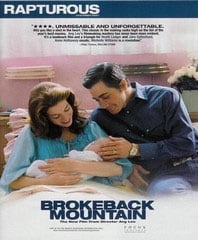 At the same time, this movie is epic in its emotional scope, and part of that is that the relationships encompass the entirety of these guys' lives. And their experiences include the characters that are played by Michelle Williams and Anne Hathaway, who, by the way, deserve their Oscar nominations.
At the same time, this movie is epic in its emotional scope, and part of that is that the relationships encompass the entirety of these guys' lives. And their experiences include the characters that are played by Michelle Williams and Anne Hathaway, who, by the way, deserve their Oscar nominations.
I don't ever want to misrepresent the film as only being about the so-called controversy surrounding its central relationship. I want to represent the story's entirety. Ang always pays extra careful attention to every piece of the emotional dynamic, which includes these marriages and includes these children and includes their whole lives. Not to mention some things that really aren't discussed, which are in many ways revolutionary, which are class issues. You don't see working class characters portrayed in mainstream American cinema that often. So all these dynamics add into what is still absolutely the central dynamic — their relationship.
[There were] a few paragraphs of post-Globes coverage in the New York Times. [The writer] Sharon Waxman created this impression that because of some “resistance” we're meeting with the “broader public” we've started putting ads in the papers that emphasize the heterosexual relationships. Which is complete and utter bullshit. It's unbelievable.
In fact, up till now, we've had two months, almost two months of advertising in main markets like New York and Los Angeles, and so when we started to refresh the campaign in just New York and L.A. and include a broader scope of imagery, just a couple of times, Waxman called that out as if we're going into Kansas and Wyoming and trying to fool people [as to] what the movie's about. In fact, from day one, we have said we are going to market this movie the same way in Little Rock as we do in New York City.
How has the market strategy been focused to gain a broader audience?color>
Because we're selling it to gay men the same way we're selling it to everybody else. Just like The Bridges of Madison County was sold to straight women the same way it was sold to gay men. Our whole point is to always treat this movie and its characters the same way you would treat any great romance. That's always been our rule.
[As the campaign broadens] you're going to start to see other characters and other parts of the film percolate up into the consciousness but clearly, the inference made in the Times was such utter, pathetic drivel — that we're trying to somehow pull the wool over someone's eyes about the movie…(laughs).
There may well be a reindeer herder in Lapland who does not know that this is a gay cowboy movie. And he might stumble on one of our Academy “For Your Consideration” ads for Michelle Williams and say, “Wow! Maybe I'll go see that.” Maybe.
I googled “gay cowboy movie” the other day and there were something like 190,000 hits. I really don't think we have to worry about somebody not knowing what the movie's about.
Has the rural response, the Red State response in particular, surprised you? What did you expect going into those states and how were you prepared to react from a marketing standpoint if the reaction was overwhelmingly negative?color>
We wouldn't have reacted if it was negative because I said from the very beginning that if somebody has a problem with the subject matter of the movie, I'm not here to help them get over their problem. It's really not my job. So we honestly just didn't care. We made the movie because we believed in it. We believed that it was a story that would appeal to everybody if we could just get it in front of them. And that's been the song we have sung from day one and we have not changed our tune.
Did you expect more controversy?color>
There are two answers to that question. One is, when we decided to think about releasing the movie, we decided not to worry one way or the other. On the one hand I didn't expect anything because I just wasn't going to ever get in the sandbox and throw sand with these people. And secondly, the honest answer is, yeah, I actually expected more push back. I did. But the strategy was always to get the film out ahead of all that, so that people could respond to the movie and not a predetermined political architecture.
This week, President Bush said that he hadn't seen Brokeback. Do you plan to offer him a screening?color>
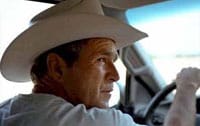 (Laughs) Actually, the studio has been asked and the studio has answered. We were asked for a print of the movie which we supplied to the White House. So maybe somebody there has seen the movie. I'm hopeful that somebody who knows what it's like to be gay in Wyoming might have seen it at least. (laughs) You supply the print but no one's going to tell you who saw it or anything. We're happy to send a free screener but I have to say, just like everybody else, we're gonna watermark it so it doesn't get pirated.
(Laughs) Actually, the studio has been asked and the studio has answered. We were asked for a print of the movie which we supplied to the White House. So maybe somebody there has seen the movie. I'm hopeful that somebody who knows what it's like to be gay in Wyoming might have seen it at least. (laughs) You supply the print but no one's going to tell you who saw it or anything. We're happy to send a free screener but I have to say, just like everybody else, we're gonna watermark it so it doesn't get pirated.
Have you spoken with Larry Miller regarding his decision to drop Brokeback from his Utah megaplex?color>
No. In our book he's just a bona fide creep. If for no other reason than we had a legal and binding agreement to screen the movie and he reneged on it. He has refused to speak with anybody publicly — certainly none of us — about his decision. But I find it hilarious that if you went to his movie theater to go see Brokeback Mountain you would have found a ticket available for the movie that he did screen which was Hostel. If that is some kind of moral response to our movie you can keep your morals! By the way, Hostel is a very entertaining film. Nothing wrong about that.
Do you plan to sue him for breaking his contract?color>
No. We're not litigious people. We're not out to fan any more flames of controversy. Blah blah blah. It's people acting badly and pretending they're doing it because they're acting well. It's bizarre, the hypocrisy.
Do you feel that Larry Miller helped rather than hurt Brokeback?color>
No. Before he did what he did, we had already opened in Salt Lake on one screen and we did $40,000 on that screen. On one screen in Salt Lake. The bottom line is I am so thrilled that we're not sharing any of the profits of this movie in Salt Lake City with that guy.
Have you experienced any similar reactions from other exhibitors?color>
Exactly the opposite. We are really almost at war with the exhibitors who are really hammering us for more prints. And it's us, not them, who have made a determination to really, in as controlled a fashion as possible, roll the movie out.
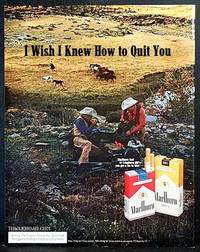 How do you respond to conservative critics who accuse you of destroying the image of the American cowboy?color>
How do you respond to conservative critics who accuse you of destroying the image of the American cowboy?color>
(Laughs). I teach at Columbia University and one of the classes I teach is on the Western. And I love Westerns. But look. I take my daughter sometimes to Yankees games and during the seventh inning stretch they often play the Village People's “YMCA” and 50,000 Yankees fans stand up and move their arms to the shape of the letters. And then we all sing the national anthem. I feel like there have been a lot of precursors that have done their share to nuance the image of the cowboy long before we produced Brokeback Mountain.
Are there any poignant viewer reactions to the film that have particularly touched you?color>
When the trailer hit back in August we started getting flooded with letters from people unburdening themselves. Just to the trailer, just to the images. And so we started to share the stories as part of the site. And literally we received thousands of stories. And it's become kind of an emotional communal pornography. We're addicted to these. I've never had a movie where that kind of response has happened, personal and immediate. People really feel a personal connection. And it's gay, straight, and everything in between.
Why do you think Brokeback has inspired so many parodies, from the television skits to the movie poster?color>
 It's funny. I wish I were qualified to answer that question. Sometimes you just gotta step back and say Holy… how did this happen? I've noticed that a great deal of the humor has not felt homophobic or exclusionary. A lot of the humor has actually been really funny. And that's been part of my surprise — actually being able to laugh along with it. And then there is another strain of it which is just virulent and grotesque and homophobic. It really needs to be called out. It's been interesting because there's been a huge spectrum of humor in response to this movie, [which is as much] a sign of real cultural maturity as [it is a sign of] immaturity.
It's funny. I wish I were qualified to answer that question. Sometimes you just gotta step back and say Holy… how did this happen? I've noticed that a great deal of the humor has not felt homophobic or exclusionary. A lot of the humor has actually been really funny. And that's been part of my surprise — actually being able to laugh along with it. And then there is another strain of it which is just virulent and grotesque and homophobic. It really needs to be called out. It's been interesting because there's been a huge spectrum of humor in response to this movie, [which is as much] a sign of real cultural maturity as [it is a sign of] immaturity.
What was the biggest hurdle getting this film into production?color>
I tried with Diana (Ossana) and Larry (McMurtry) for a couple years as an independent producer to make it, and it just wasn't in the cards, and I can't say that it wasn't the right time or that there was a homophobic conspiracy. You just never know. When I was an independent producer I made 45 movies which means I didn't make another 400 that I tried to. And Brokeback was among those 400. But once we got Focus and David Linde and I were the ones greenlighting movies it was just like, wow, I get to put our money where our mouths used to be. So there was that little moment — that frisson — basically saying — weird, we just did that.
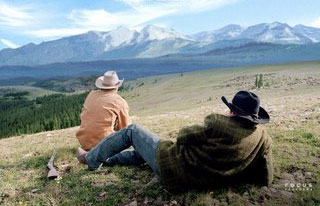 What were the biggest hurdles you had to overcome during production?color>
What were the biggest hurdles you had to overcome during production?color>
Ang and I have worked on nine movies together and this was the nicest one on which we've ever worked. Very straightforward. I set a very tight budgetary reign on the process. Not unduly tight, but he was coming off of Hulk, and after a filmmaker goes through a big movie like that they like to forget what it's like not to have everything you want all the time. And Ang made every single day, he made it on budget, on schedule, and loved every minute of it. With such a genuine tenderness. I'm sorry to sound like a Pollyanna but we really didn't have any [hurdles].
Historically, actors have been hesitant to play gay roles. Was there any concern on the parts of Heath and Jake that it would hurt their careers?color>
If there was, they and their representation never shared it with us. This was literally the easiest film I've ever had to cast. We had a harder time back in the day with Wedding Banquet. We couldn't even get people to come in and read who were more established actors at the time. Ang's reputation made a big difference, but clearly, times have changed decisively at this point. Obviously you don't want to pat yourself on the back too much. We're still far behind where the world ought to be. It's easy for us to be very self congratulatory about the whole thing but this is still a small step. At least I feel Brokeback is a step forward, but there's a long way to go.
In what way do you think that the response to the film has opened the eyes of the actors, or filmmakers, to homophobia in America in a way that they didn't realize before the film was released?color>
I think it's part of the ongoing process of the reception of the film. I think everybody's aware of Mathew Shepard. On the one hand, Brokeback Mountain really represents entering into the mainstream in a way we should all be proud of. On the other hand, wouldn't it be great if at the Oscars, Julia Roberts' male co-star showed up holding the hand of his boyfriend and the only thing people thought about is what they were wearing? That's where we've got to go. If you put it in that context, you really see how far we've got to go to live in the world we want to be living in. And I often think that one way to get there is to live as if you already are living in that world.
What was the reaction to Dennis Quaid's ‘dick flick' joke at the Golden Globes?color>
There was no real reaction. It laid very flat in the room as it probably should have. People just moved on. Obviously when you're in that situation and somebody's yelling out the name of your movie it's easy to forget the minute that happened just before.
Were there discussions during filming about how much sex to show, or was that a decision that was left completely up to Ang Lee?color>
There certainly were, and at the very beginning what Ang and I agreed on was very simple. That it was always going to be however much sex was needed to tell this story the way it deserved to be told. And we would never pull back in terms of the representation of it to apply some kind of double standard. If this were a straight romance, what would you see in this genre in this context? That was always a touchpoint. We said let's not treat this sex any differently.
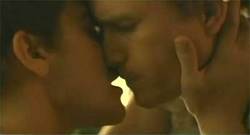 And not just the sex by the way. I really think the fixation on the sex part is kind of silly. For me, what is just as moving about the representation is the tenderness, you know, when they're cuddling in bed naked, and it's not even the sex, it's their physical comfort with each other. It's a lot easier to simulate sex than to have actors be in love and physically comfortable together. I know that I'm off the cultural radar in this way — nobody focuses on that — but to me when they're in the motel together and Jake's got his arm around Heath and they're just hanging out, I think that's a much more radical image than any kind of sexual situation.
And not just the sex by the way. I really think the fixation on the sex part is kind of silly. For me, what is just as moving about the representation is the tenderness, you know, when they're cuddling in bed naked, and it's not even the sex, it's their physical comfort with each other. It's a lot easier to simulate sex than to have actors be in love and physically comfortable together. I know that I'm off the cultural radar in this way — nobody focuses on that — but to me when they're in the motel together and Jake's got his arm around Heath and they're just hanging out, I think that's a much more radical image than any kind of sexual situation.
Were there any other taglines aside from”Love is a Force of Nature” that were considered?color>
There were, although I'm blanking on them. Once we saw that we really loved it. Obviously there's implicit politics in that as well as a kind of universal appeal.
Has Brokeback been your most satisfying experience professionally?color>
Yeah, absolutely. Crouching Tiger meant a lot, and Ice Storm too.
Do you see yourself as having a political responsibility?color>
We took some fairly gentle swipes for not making a political statement at the Globes. If the film were lousy or bombing at the box office no one would care what soapbox I stood on or what speech I gave. It's only a measure of its success. I want to treat the movie like any other movie. On the other hand I do think that we have to listen to the sense of ownership and passion with which people are following the film. And our presentation of it. I don't want to write those criticisms off at all because I feel there's something in that dialog that is important to listen and respond to.
As a straight man, why does gay cinema make up such a large portion of your background?color>
A big part of my life has been about negotiating and thinking about and bringing forward a lot of queer cinema of different kinds and in different contexts, and it's been a big and happy part of my life.
I come out of academia. I have a fairly strong political background. When I get up in the morning and try to make my mark or leave my impression in the world of the culture I really am always looking for voices and visions that mess with present realities. I really enjoy it, and it's important for me to be able to go home and look at my kids and say what I did today was something I'm proud of. And so that's a big part of why I'm doing what I'm doing. To be part of the American independent scene in the late 80's and early 90's meant that you were defined by, in many ways, your relationship to the early days of queer cinema, which was really the most challenging and the most defining part of that cultural moment.



